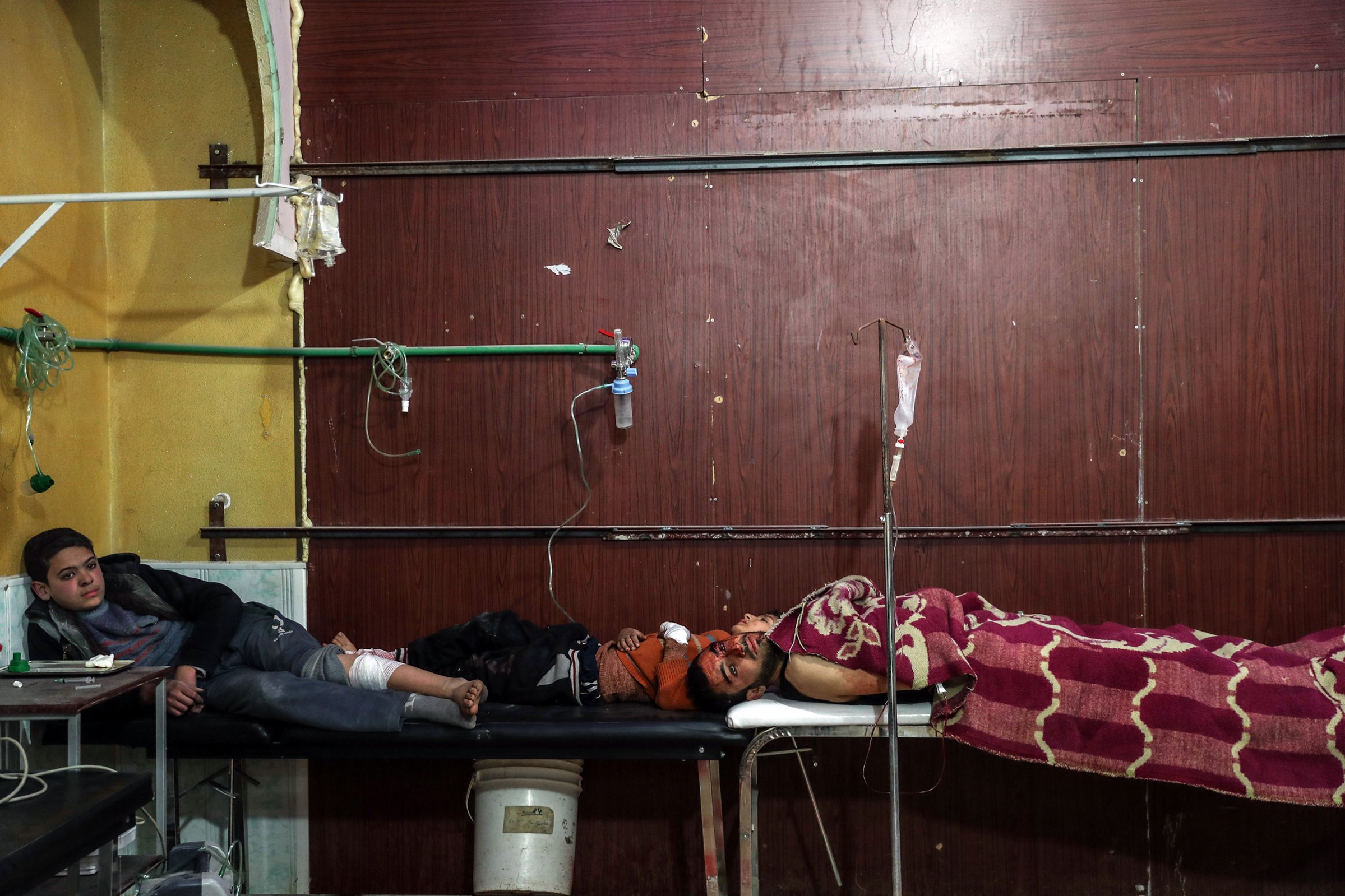
A paramedic shares his experience of the siege and bombardment of Eastern Ghouta, Syria, where at least 403 civilians have been killed by government-led forces since Feb. 18, according to the Syrian Observatory for Human Rights. The area has been held siege since 2013 and suffered pronounced attacks throughout February. The International Rescue Committee (IRC) spoke with the author over the past few weeks to compile this account. He is a father of three young children and requested to remain anonymous out of concerns for safety.
I will never forget being called to rescue a seven-year-old child who had been playing on the balcony of his house. He came across a bomb — which exploded. His body was a heap of flesh without bones.
Inside the ambulance, I am like a machine. I don’t feel. I don’t think. I only work. It’s tough. I can get a call at any moment so I can never really rest. I work day and night shifts; a shift is 12 hours long. On normal days, I treat six to ten patients. When there is shelling, I get up to 50 patients in one day. Recently, there have been daily bombardments.
We have a number of ambulances, but most of the time, three or four are not working, made worse by attacks which happen on a regular basis. All ambulances are short of critical medical supplies. We have the basics such as blood pressure machines, thermometers, stretchers and first aid materials like bandages. But often, the material is of bad quality. Because of the siege, we only have local resources. We hope to also get oxygen flow and defibrillators that can help us save the lives of patients while we transfer them to hospitals. Even the diesel to drive the ambulances is very expensive — one liter costs $8.
In all of Eastern Ghouta, there are only 95 doctors — one per 4,200 people — and almost 400 registered nurses and midwives. Recently, around 700 people have been trained by the doctors through IRC-supported partner organizations to work as support paramedics and nurses in the hospitals. But that still isn’t enough. People with chronic diseases lack medical supervision. My neighbor, for example, has diabetes. He lost his vision two months ago due to the lack of insulin. Patients with asthma are also unable to get proper treatment and medicine. I move from one hospital to another in my daily work, so I know that the stock of medicine is almost gone. Some hospitals are using expired medicine to treat patients. I am worried about the coming days and how we will be able to manage our life.
Everything has changed since the siege in Eastern Ghouta started. The air raids have made the daily suffering worse. The high price of food is our biggest problem now, especially over the past six months. Before the siege, people in Eastern Ghouta lived off of agriculture and had enough vegetables and fruits. Now, children are starving. Many things are not available anymore, or too expensive, like fruit, meat and chicken. Two pounds of bread cost over $2 now, which most people can’t afford, that’s twenty times what it costs elsewhere in Syria. The only vegetables available are corn and eggplant. Wheat is not available, so people eat barley instead. Milk for children is very expensive too, a liter of milk costs over $1. This year, the majority of children are suffering from anemia. My family usually only has one main meal per day. We don’t have a choice in what we eat; we have to eat what is available. Last night, my family had eggs for dinner.
The people in Eastern Ghouta are mentally affected by the situation. Most children have seen loved ones killed, injured or disappear. This will affect their future and the way they see life. Some young people are thinking about suicide, and older people are suffering from depression. Nobody is happy. People don’t celebrate birthdays now, even if they can afford it — out of respect for other families who either cannot afford it or recently lost a family member in the attacks.
My family and I are living in constant stress and depression. Every day, I pray and hope the conflict will end. Sometimes I wish I could move away from Eastern Ghouta and live outside Syria. I really can’t imagine a good future here right now. My dream is to see my city free, without siege.
More Must-Reads From TIME
- The 100 Most Influential People of 2024
- How Far Trump Would Go
- Scenes From Pro-Palestinian Encampments Across U.S. Universities
- Saving Seconds Is Better Than Hours
- Why Your Breakfast Should Start with a Vegetable
- 6 Compliments That Land Every Time
- Welcome to the Golden Age of Ryan Gosling
- Want Weekly Recs on What to Watch, Read, and More? Sign Up for Worth Your Time
Contact us at letters@time.com